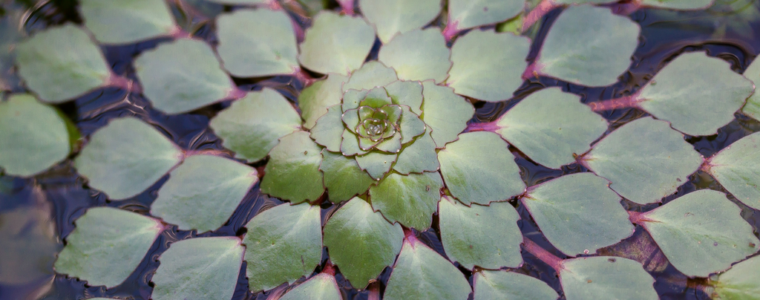
It’s the time that raccoons and herons wait all year for! Of course, we’re talking about backyard ponds opening back up! As ponds thaw out from winter and the fish become more active again, it’s prime time for birds and raccoons to take the opportunity to go fishing. While we want to respect these animals from a distance, we also want to make sure our ponds remain a safe place for the fish.
If you realize fish are disappearing from your pond, you may have had a recent visit from one of these predators. Being nocturnal, raccoons will come visiting overnight. Raccoons will be more likely to get fish in ponds that have shallow edges or gradual slopes to the sides. Designing your pond without these sloping edges is a great way to deter possible raccoon predation. Trying to add some features or plants around the edges of the pond may decrease the area that raccoons can access. Perhaps most importantly, keep the raccoons from coming to your yard in the first place, by making sure that no food items are left outside, and that trash is kept in secure containers.
Herons and other predatory birds can be more difficult. The majority of heron attacks occur at dawn and dusk, but can be any time of the day. In some instances, having a decoy bird near the pond may deter heron visits, but it is not guaranteed. Herons will visit ponds where fish are more visible while in flight, so adding some floating plants or other water features to the pond may make it so they fly over your pond. Adding bird netting or leaf netting over the top of the pond may reduce your chances as well, however you need to continue to check the netting for any holes or wear throughout the season as this may increase the chances of birds or other wildlife getting tangled in the netting. (Freedom Center for Wildlife does not advise the use of netting because songbirds can become entangled and die.)
There are also different forms of deterrents on the market in the form of motion sensors that spray water at passing predators. This is a great, non-hazardous option for deterring both birds and raccoons from the pond. However, you must remember to warn your human pond visitors (and fish veterinarians!) about the motion sensor before showing off the pond. Or, you could always forget and see their reactions!
– Colin McDermott, VMD @FCW
